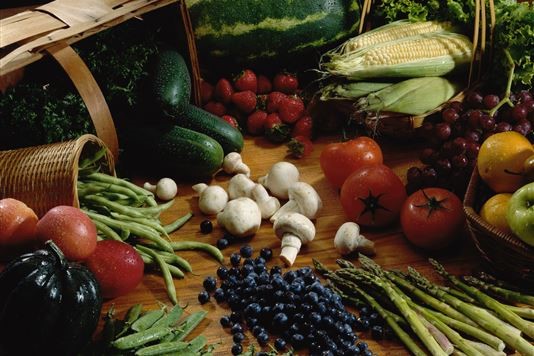Can we all still afford to eat a healthy diet?

A new study reveals the growing gap in price between less healthy foods and healthier alternatives.
Could the UK’s health be affected by fast-growing prices for healthy foods? New research, which has analysed the cost of 94 food groups between 2002 and 2012, shows prices of healthy foods are growing at a much faster rate than unhealthy foods.
So can we all still afford to be healthy?
Healthy food is expensive
The research, published in the open access journal PLOS ONE, showed that healthy foods were consistently more expensive over the years studied. Price was determined by how much it would cost for 1000kcal of a product.
That in itself probably doesn’t surprise anybody reading this: I can buy six apples for £2 or six bags of crisps for £1 in one of the nearby shops, for example.
It’s the other finding that I find interesting. Though price inflation will occur over time, the new research shows that healthier foods’ prices are rising faster than unhealthy foods.
Fruit and vegetables, which cost on average £7.40/1000kcal in 2002, cost £9.13 in 2012, up by £1.73. Foods and drinks high in fat and/or sugar cost £2.09/1000kcal in 2002, and cost £3.11 in 2012, an increase of just £1.02.
The average addition to the cost of all foods was £1.34. So the healthy food increase is way above average and the unhealthy foods way under.
Why does it matter?
The researchers cited the 2010 Global Burden of Disease Study, which found that 14.3% of the UK’s disease burden is caused by unhealthy diets. They say that “one factor that might limit the uptake of healthier diets is the cost of healthier foods.”
Indeed, in a 2013 DEFRA survey, price was named as the most important factor influencing the public’s choice of food. So the new study prompts major concerns that people on lower incomes will be ‘priced out’ of affording a healthy diet, and of course unhealthy foods tend to be more convenient too.
The burden on the NHS of poor diets was estimated to be £5.8 billion in 2006-7 (the most recent figures available), which was less than the cost of alcohol or smoking. The cost could be considerably more by now.
What can we do?
The Government doesn’t currently monitor food prices in relation to their nutrient content. A new routine monitoring programme could help us understand food prices and perhaps implement some method of controlling the price of healthy foods so they are affordable to all.
Investment in such a scheme, particularly if it was targeted at groups with low incomes, could help to keep people healthy, which could result in huge benefits in the form of cost reductions to the NHS.
The Environment, Food and Rural Affairs Committee has now announced that it is launching an inquiry into food security in the UK, looking at demand, consumption and waste, which might also address the concerns of unaffordable healthy foods.
Anne McIntosh, Chair of the Committee, said that "everyone should have the opportunity to have a healthy diet at an affordable price and which supports sustainable food production. We will be looking at the factors influencing the choices we all make about the food we eat, where we buy it and how these affect the nation's ability to ensure we all have access to good food." She went on to say that the inquiry will investigate how secure food supplies can be established from sustainable sources in years to come.
What do you think should be done to help people who are struggling financially to eat healthily? Have you noticed the increase in the price of fruit and vegetables? Let us know your thoughts in the Comments below.
You might also like:
Is our 'traffic light' labelling system too simple?
Most Recent
Comments
Be the first to comment
Do you want to comment on this article? You need to be signed in for this feature








